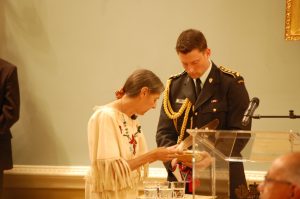
Proposed federal bill looks to create commemorative statutory holiday
By Roshni Riar, Staff Writer
In early February, a Canadian federal bill aimed at creating a new annual statutory holiday was proposed. The bill’s focus is to encourage the Canadian public to observe Indigenous truth and reconciliation and remember those who suffered through the residential school system.
Approved by the House of Commons Heritage Committee, the statutory holiday—National Truth and Reconciliation Day, to be observed on September 30—is meant to remember and recognize the horrors that Indigenous children and families faced in residential schools for over a century across the country.
The committee settled on September 30 for the statutory holiday as September was typically when Indigenous children would be sent away to begin residential schooling. The holiday would replace Orange Shirt Day, an unofficial day of remembrance for the victims of residential schools.
National Truth and Reconciliation Day’s proposition was added onto Bill C-369. Already in discussion for months, Bill C-369 seeks to designate June 21 as National Indigenous Peoples’ Day. Organizations such as the Native Women’s Association of Canada (NWAC) and Inuit Tapiriit Kanatami (ITK) supported the creation of both separate annual holidays.
The development of a statutory holiday to honour survivors was put forth as a call to action in the 2015 National Truth and Reconciliation Commission Report. The report—when looking at Canada’s actions of public commemoration—recognized the Canadian government’s prior efforts but emphasized the need for further initiatives in their call to action.
As well as the creation of the statutory holiday, the report also encouraged the development of a proper federal reconciliation framework, installations of accessible public monuments, and funding for Indigenous artists to flourish and contribute to the reconciliation process with their art.
Bill C-369 must still be voted on in the House of Commons.
The Indigenous Languages Act—Bill C-91—was also tabled early February. The act focuses on the maintenance and continued existence of Indigenous languages through education, support, and funding.
While many Indigenous communities have expressed support for the act, not all groups agree on the process of consideration. In a public announcement following the bill’s tabling, ITK’s president Natan Obed criticized it as “yet another legislative initiative developed behind closed doors by a colonial system” due to the bill’s lack of Inuit-specific content.
Gagan Mann, a former Psychology student, said in an interview with the Other Press, “These are good steps forward, but I think that [additional steps] still need to be made.
“While I’m not Indigenous and can in no way speak on behalf of anyone who is, I feel like there are crucial supports for overall welfare and survival that are being overlooked.”
Mann thinks that setting aside the time to observe truth and reconciliation is important, but she fears that the introduction of a statutory holiday will only appeal to the public for personal gain.
“There are people who will recognize the Canadian government’s efforts, appreciate them, and perhaps [research and inform] themselves of the history. The Languages Act could be interesting, but the criticism it’s [receiving] is also valid.”
Mann hopes to see Indigenous peoples consulted more thoroughly on their immediate needs and desires so that future federal bills can be structured around these requirements.


